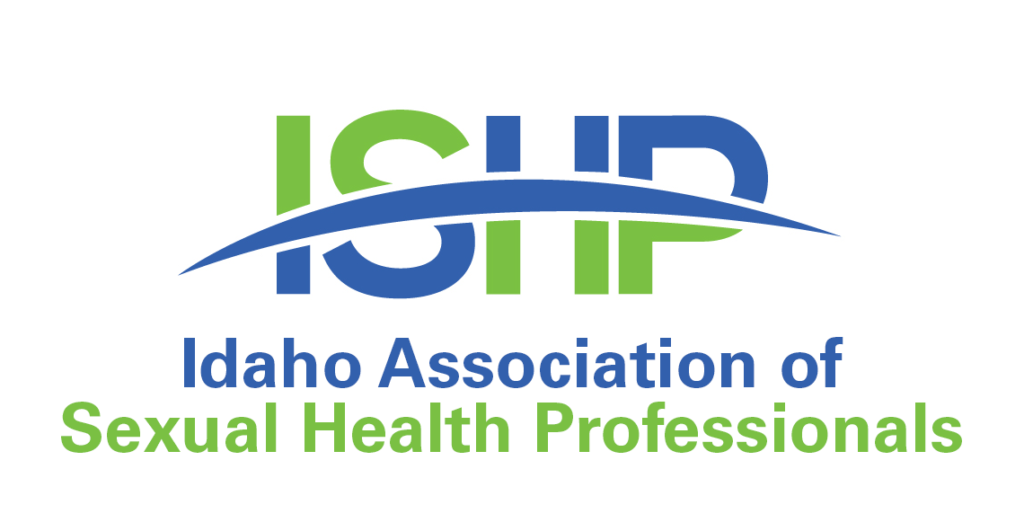As a professional association for multidisciplinary professionals in Idaho who work in the sector of sexual health, we are greatly concerned that the delivery of essential health care in a safe manner could now be criminalized. Medical and mental healthcare rest first and foremost on providing care that will keep our patients safe. This move by Idaho’s government intrudes deeply on private citizens’ right to care and the provider’s right to ethically provide it.
We stand with AMA (the American Medical Association) who has stated: “In alignment with our long-held position that the early termination of a pregnancy is a medical matter between the patient and physician, subject only to the physician’s clinical judgment and the patient’s informed consent, the AMA condemns the high court’s interpretation in this case. We will always have physicians’ backs and defend the practice of medicine, we will fight to protect the patient-physician relationship, and we will oppose any law or regulation that compromises or criminalizes patient access to safe, evidence-based medical care, including abortion.”
We stand with APA (the American Psychological Association) who has stated: “Rigorous, long-term psychological research demonstrates clearly that people who are denied abortions are more likely to experience higher levels of anxiety, lower life satisfaction and lower self-esteem compared with those who are able to obtain abortions. Research also suggests that adding barriers to accessing abortion services may increase symptoms of stress, anxiety and depression. And, there is a strong relationship between unwanted pregnancy and interpersonal violence. Specifically, psychological science suggests that the inability to obtain an abortion increases the risk for domestic abuse among those who are forced to stay in contact with violent partners, putting them and their children at risk. In addition, there is no research to indicate that abortion is a cause for subsequent mental health diagnoses.”
We stand with AASECT (American Association of Sexuality Educators, Counselors, and Therapists) who has stated: “We recognize that decisions about induced abortion have the potential to be nuanced and complex. The ongoing conversation about abortion is not simply a moral or a spiritual debate— it is a discussion of human rights and bodily autonomy for all people who can become pregnant. These existing laws and ongoing attempts to further restrict abortion access will not stop induced abortions, but instead will create excessive burdens on already marginalized populations, and drastically increase medical risks of pregnant individuals seeking to induce abortion for a variety of reasons.”
We stand with WAS (World Association of Sexual Health) who has stated that laws that restrict access to safe induced abortions violate the sexual rights outlined in its Declaration of Sexual Rights (2014). WAS discussed the “right to the highest attainable standard of health, including sexual health” stating that this includes “the availability, accessibility, and acceptability of quality health services….”.
We stand with Planned Parenthood of Idaho who has stated regarding the Idaho trigger law, “If allowed to take effect, the ban will prevent health care professionals from providing necessary medical care, forcing patients to travel out of state if they have the means, carry an unintended or dangerous pregnancy to term against their will, or look for abortion care outside the health care system. Without relief, the ban will disproportionately impact Idaho’s communities of color, people with low incomes, and those living in rural areas.”
For Idahoans specifically, ISHP (Idaho Sexual Health Professionals) is committed to addressing local concerns and needs once the Idaho trigger laws are activated. As an association we commit to:
- Educating medical and mental health care providers on greater abortion care resources for Idahoans such: options across state lines, funds to cover procedure and travel expenses, safe use of herbal abortifacients, oral medications via mail, post-abortion care resources.
- Greater contraceptive education and access for Idahoans.
- Greater contraceptive clinical education for ALL sexual health providers **Especially improving our counseling on what to do if you miss a pill, have irregular periods, broken condom, unprotected IC, and specific directions about how and when to use the emergency contraceptive pill (which is still legal and not considered abortion) – this is very basic counseling that any sexual health provider should be able to provide.
- Legal implications for women seeking options counseling, traveling out of state for abortions, talking to providers about their experiences.
- Medico-legal implications for social service, mental health, and healthcare providers who might discuss abortion, options counseling, contraceptive education.
- Medico-legal implications for providers who might treat those with missed abortions (miscarriage), ectopic pregnancies, non-viable pregnancies, fetal anomalies discovered on anatomy scan (20 weeks), victims of rape or incest, pelvic reproductive trauma, post-abortion care.
- The mental health burden and collective trauma of legislation that limits bodily autonomy.
- The collective trauma and resulting chaos of forcing birth in a country with the worst maternal healthcare and parenting resources in the industrialized world.
- The impact this is having on sexuality, intimacy, and desire.
Resources
https://www.aasect.org/position-statement-abortion
https://www.apa.org/news/press/releases/2022/05/restricting-abortion-mental-health-harms
